Profiles
All the People Who Do This Work
At Western, there are many professors who are working to ensure students can easily obtain free, current, relevant, and accessible course content, hence embracing Open Educational Practices. These professors find and evaluate open educational resources (OERs) in many forms, including eBooks, open access articles, Creative Commons licensed media, open source software, and more--and the redesign of their courses lends to collaborative, inclusive, and student-centered pedagogical practices.
We are grateful for everyone who is making higher education more affordable and accessible, contributing their energy to the open movement. We commend all those at WWU who are taking on this challenge and paving the way for others.
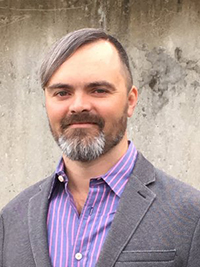
Daniel Chard
Department of History
Daniel Chard incorporates OER and OEP into his classroom to encourage and challenge his students to gather their very own primary source research. Dan utilizes local resources such as the Center for Pacific Northwest Studies, and the Whatcom Museum, along with local historic sites or monuments.
History 391: History of the Pacific Northwest
-
Introduces different historical research methods, analytical concepts, physical and digital archives, and local public history resources. Class involves field trips to local museums and sites and opportunities for students gather and report findings.
-
Class focuses around primary and secondary source research. Students create short primary source research projects and presentations throughout the quarter.
-
Final projects engage student professional goals giving students the opportunity to develop lesson plans, design historical exhibits, strengthen research skills through traditional academic writing with the goal of helping build transferable communication skills into a variety of careers.
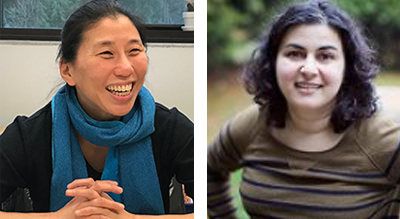
Shirin Deylami and Vicki Hsueh
Department of Political Science
As awardees of the 2019 Washington State OER Grant, Shirin Deylami and Vicki Hsueh seek to create a completely free digital textbook for their course, PLSC 261: Introduction to Political Theory. One of the reasons they are targeting creating an OER textbook for this course specifically is because it will impact students across Western’s campus who take the class as a GUR requirement.
PLSC 261: Introduction to Political Theory
-
Introduces students to the history of Western political theory with three main themes: the essential questions of theoretical inquiry in political science, democracy as an ideal form of governance, and finally, how the powerless can achieve political authority.
-
Helps students think critically about the construction and processes of governance, power, and resistance in modern political life.
-
Develops an understanding of evaluating assumptions, values, and beliefs in local, national, and global communities.
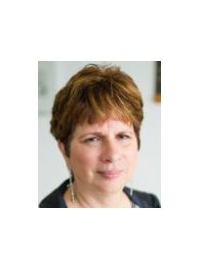
Amanda Eurich
Department of History
Reacting to the Past is a role-playing pedagogy that maintains a vast catalogue of games in development that are available online at http://reacting.barnard.edu. Game manuals in development are free-of-charge to students; instructors also have access to the BLORG which provides pedagogical materials to assist with set-up and game play.
This quarter students in History 321 explored the politics of peace-making and debates over religious toleration in the sixteenth-century civil wars in France by testing a role-playing game that I co-wrote with a colleague at Quinnipiac University. All materials for the game were posted on Canvas for easy access. RTTP also has published game materials, but many games still in development are available at no cost to instructors and students.
PLSC 261: Introduction to Political Theory
-
Introduces students to the history of Western political theory with three main themes: the essential questions of theoretical inquiry in political science, democracy as an ideal form of governance, and finally, how the powerless can achieve political authority.
-
Helps students think critically about the construction and processes of governance, power, and resistance in modern political life.
-
Develops an understanding of evaluating assumptions, values, and beliefs in local, national, and global communities.
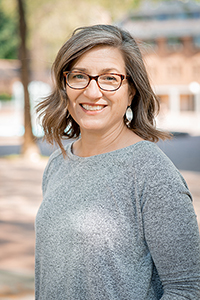
Deborah Hanuscin
Department of Elementary Education
Deborah Hanuscin incorporates collections of articles from professional literature rather than using a traditional textbook to make her class more accessible and affordable for students. Using OER allows students to access the different chunks of information that they need throughout the quarter from different and contemporary academic thinkers, giving students more than one perspective and expanding their worldviews.
SCED 480: Science Methods and Curriculum for the Elementary School
-
This class utilizes different scholarly articles that offer a variety of perspectives and offer examples from actual classroom teachers.
-
The class reflects current changes in science teaching standards and policies.
-
The design promotes the idea that students can be lifelong learners, able to access information similar to OER resources in their districts and/or memberships in professional associations.
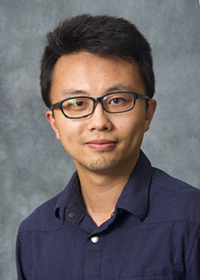
Qiang Hao
Department of Computer Science
As an awardee of the 2019 Washington State OER Grant, Qiang Hao focuses on a set of student-centered open educational resources that are tailored to his course and will be usable by all other faculty members teaching the same course. His goal is to create OER that cover the entirety of topics taught in the course, are interactive (allowing students to learn at individual paces), and are reusable for students and other faculty.
CSCI 145: Computer Programming and Linear Data Structure
-
This class is part of the core coursework for computer science major.
-
Students will learn about topics like: abstract data types, generics, access or pointer types, dynamic memory allocation, recursion, concurrent programming and linear data structures, including stacks, lists and queues.
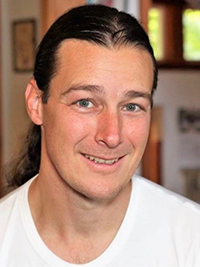
Paul James
Department of Anthropology
Paul James implements a range of Open Educational Practices in his course, Introduction of Cultural Anthropology. Paul uses Open Educational Practices to have students collectively author a wikibook textbook and a wikibook guide for effective student organizations. The guide serves as a current and living resource for some WWU Associated Students Clubs and organizations. Paul participated in the Faculty Development Summer Grant, alternative text track, in 2017, focusing on replacing his textbook and moving towards using open educational resources.
ANTH 201: Intro to Cultural Anthropology
-
Focuses on introductory concepts, methods and practical application of cultural anthropology and understanding social and cultural variation around the world and over time.
-
One class assignment is to work as a team to produce a video or powerpoint of an interview with an expert user of the WWU Vehicle Research Institute or the Viking eBike program. The goal of this assignment is to teach applied cultural anthropology by supporting the design phase of the two sustainability projects above.
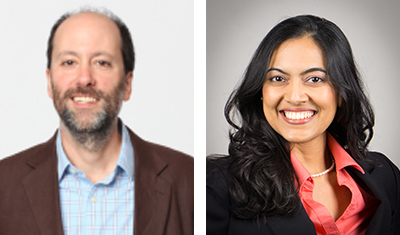
Jason Kanov and Meg Warren
Department of Management
As awardees of the 2019 Washington State OER Grant, Jason Kanov and Meg Warren emphasize the use of open educational resources in their curriculum development. They are working collaboratively to entirely replace their former textbook with open educational resources to help make the class more affordable to students and improve course content. Between their course offerings, approximately 600 Western students in a typical year will be impacted through their use of open educational resources.
MGMT 311: Organizational Management and Behavior
-
Encourages students to think about why organizational leaders should care, value, and build critical relationships with their employees.
-
Asks students to think about how they can transfer the knowledge they are gaining through course content to the real world to help build stronger future organizations.
-
Assigns a team assignment that evaluates a real-life manager’s approach to people management. Students will use themes from the coursework to assess efficacy of the management styles and develop strategies for future use.

Andy Klein
Department of Engineering and Design
Andy Klein applies an Open Educational Practices philosophy to his courses EE 360 and EE 460. Having been frustrated with the traditional electrical engineering textbooks that were heavy in theory but lacking in practical application, Andy co-authored and published the free textbook Software Receiver Design: How to Build Your Own Communication System in Five
Easy Steps through Cambridge University Press. It is currently hosted through OpenSTAX and is the required text for both of the classes he teaches.
EE 360: Communication Systems
-
This course introduces analog and digital communication systems with an emphasis on system level concepts.
-
Some of the fundamental principles that are covered are: modulation and demodulation, radio architectures and receiver structures, bandwidth requirements, SNR, pulse shaping, and synchronization.
EE 460: Digital Communication Systems
-
This course focuses on advanced digital communication system design, analysis, and implementation.
-
Random processes will be used to model communication systems and analyze their performance in noise.
-
Advanced communication techniques will be studied, such as: multicarrier systems, spread spectrum, equalization, channel coding, and modern wireless protocols and standards.
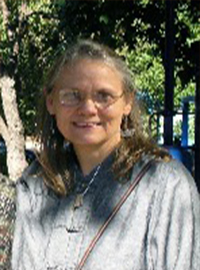
Kathy Kuba
Department of Anthropology
After doing the Faculty Development Summer Grant, alternative text track, in 2017, Kathy Kuba replaced one of the two textbooks in her course with a free, online textbook. Kathy now uses Perspectives: An Open Invitation to Cultural Anthropology which was compiled and edited by a team of working anthropologists representing the Society for Anthropology in Community Colleges, (an arm of the American Anthropological Association). While it took much longer than expected to transform her course with the new materials, the new text links to many current resources, extending and enhance the experience of learning the material. Kathy says providing free or low cost materials is important to her as her students face the skyrocketing cost of higher education. As she teaches her class as an online course, it made more sense for the textbook to match the medium of instruction.
ANTH 201: Intro to Cultural Anthropology
Syllabus, spring 2019 calendar
-
The class focuses on introductory concepts, methods and practical application of cultural anthropology and understanding social and cultural variation around the world and over time.

Leah Lippman
Institute for Global Engagement
After doing the Faculty Development Summer Grant, alternative text track, in 2018, Leah Lippman redesigned her Introduction to Global Studies course with the goal of making the course more affordable to students and updating course goals, objectives, assignments, and assessments. Leah eliminated the costly textbook making it a low-cost course for students and selected OER materials that are reflective of current issues, topics, perspectives, scholarship, and diverse voices.
INTL 201: Introduction to Global Studies
-
The class serves as an introduction to contemporary global issues, drawing on the integrated knowledge and methodologies of multiple disciplines.
-
Students engage in critical thinking skills by exploring diverse, marginalized, and non-academic voices in the course readings.
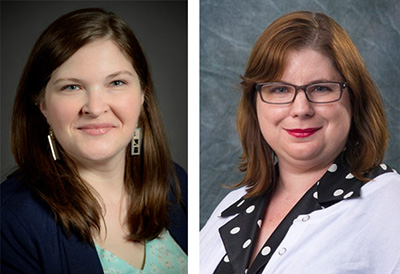
Jenny Oleen and Rebecca Marrall
Western Libraries
In 2016, librarians Jenny Oleen and Rebecca Marrall edited and released a free open access textbook called The Research Process: Strategies for Undergraduate Students. They invite students, faculty, and service professionals to use the textbook to better teach and learn the research process.
The Research Process: Strategies for Undergraduate Students
In this course, students:
-
Explore and evaluate different information sources.
-
Learn how to develop robust search strategies for information sources.
-
Learn about copyright practices and Fair Use.
-
Learn how to synthesize and correctly cite research materials.
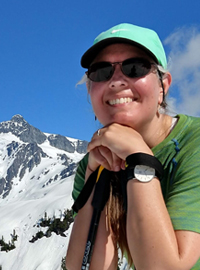
Roxane Ronca
Department of Mathematics and Department of Science Mathematics and Technology Education
Roxane Ronca created and continues to develop a workbook for her Introductory Algebra class. She noticed that many students in beginning math classes have misunderstandings not covered in college-level texts so she wrote her own resource for the class. Roxane has found that through writing this text to address common misconceptions, she has a higher number of students who are passing the class.
MATH 099: Introductory Algebra
-
Course description under review
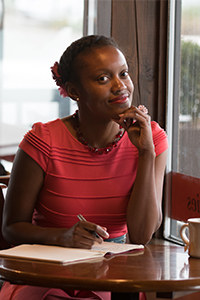
Danielle Smith
Center for Community Learning
Danielle Smith works in the Center for Community Learning to develop, strengthen, and promote community engagement pathways for first-year students. As an instructor in the First-year Interest Group program, she teaches seminar courses to help students negotiate the academic and personal opportunities and challenges of their first year. Danielle worked to create a low-cost class experience for students where there were no required textbooks, most material was accessible online at no cost, and students had creative freedom to complete their assignments in ways that best honored their learning styles. As an engaged learning practitioner, Danielle provides guidance and coaching to students to learn their rights, responsibilities, and resources for a successful transition through their first year in college and beyond.
Seminar 101: How to Live in the World
-
Goal of the course is to analyze social problems and pathways to social change.
-
Students reimagine how we think and talk about failure versus success.
-
Students complete an independent learning project demonstrating their interpretation of “education as the practice of freedom.”
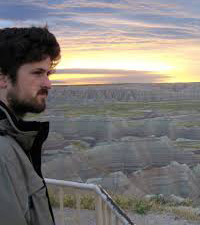
Todd Smith
Department of Music
As an awardee of the 2019 Washington State OER Grant, Todd Smith is committed to inclusivity and accessibility for all students through the use of open educational resources. By eliminating his current textbook and developing a comprehensive electronic text for students to access within our learning management system, the new and improved “text” would include audio and visual examples of relevant artists embedded within the text itself. By creating his own textbook, he is able to provide a more accessible and current text that allows students to easily hear or see the concept being covered in the textbook.
MUS 105: Survey of Popular and Rock Music
-
Students are introduced to genres, forms, and composers of the popular music within the framework of historical and cultural context.
-
Students use hands-on techniques to examine the history of recording, radio, and electric instruments/amplifiers.
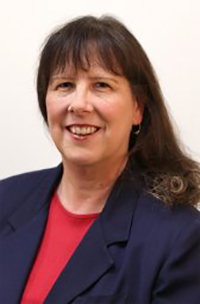
Peggy Watt
Department of Journalism
Through the Faculty Development Summer Grant, alternative text track, in 2017, Peggy Watt revamped her Mass Media Law course, a course required for all journalism majors and minors, to replace the often-expensive law textbooks with online materials. Course materials include current news coverage, articles in journalism trade publications and academic journals, court publications, the Electronic Frontier Foundation, and the ACLU, and many other free and open access materials available online.
JOUR 350: Mass Media Law
-
Students learn rights and legal restrictions on freedom of the press; constitutional guarantees as interpreted through the courts; libel, privacy, access to information, censorship, contempt, agency regulations.
-
Students discuss issues that apply to various forms of mass media (print, broadcast and online publishing).
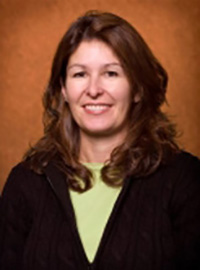
Jane Weston
Department of Management
Jane Weston participated in the Faculty Development Summer Grant, alternative text track, in 2018, in order to use an OER framework with her Teamwork Basics course. Jane emphasizes the Open philosophy not just within the courses she teaches but also across her department.
MGMT 313: Teamwork Basics
-
Students develop written, oral, and interpersonal communication skills in a teamwork environment.
-
Students assess their qualities as a team member and understand how individual team member characteristics influence team effectiveness.\
-
Students apply theories of group process, group structure, and organizational context to influence team effectiveness.
-
Students use virtual mediums like Zoom or Facebook to solve a problem and compared it to solving a problem in person.
-
Students collect and share or possibly create case studies related to team dynamic processes.
